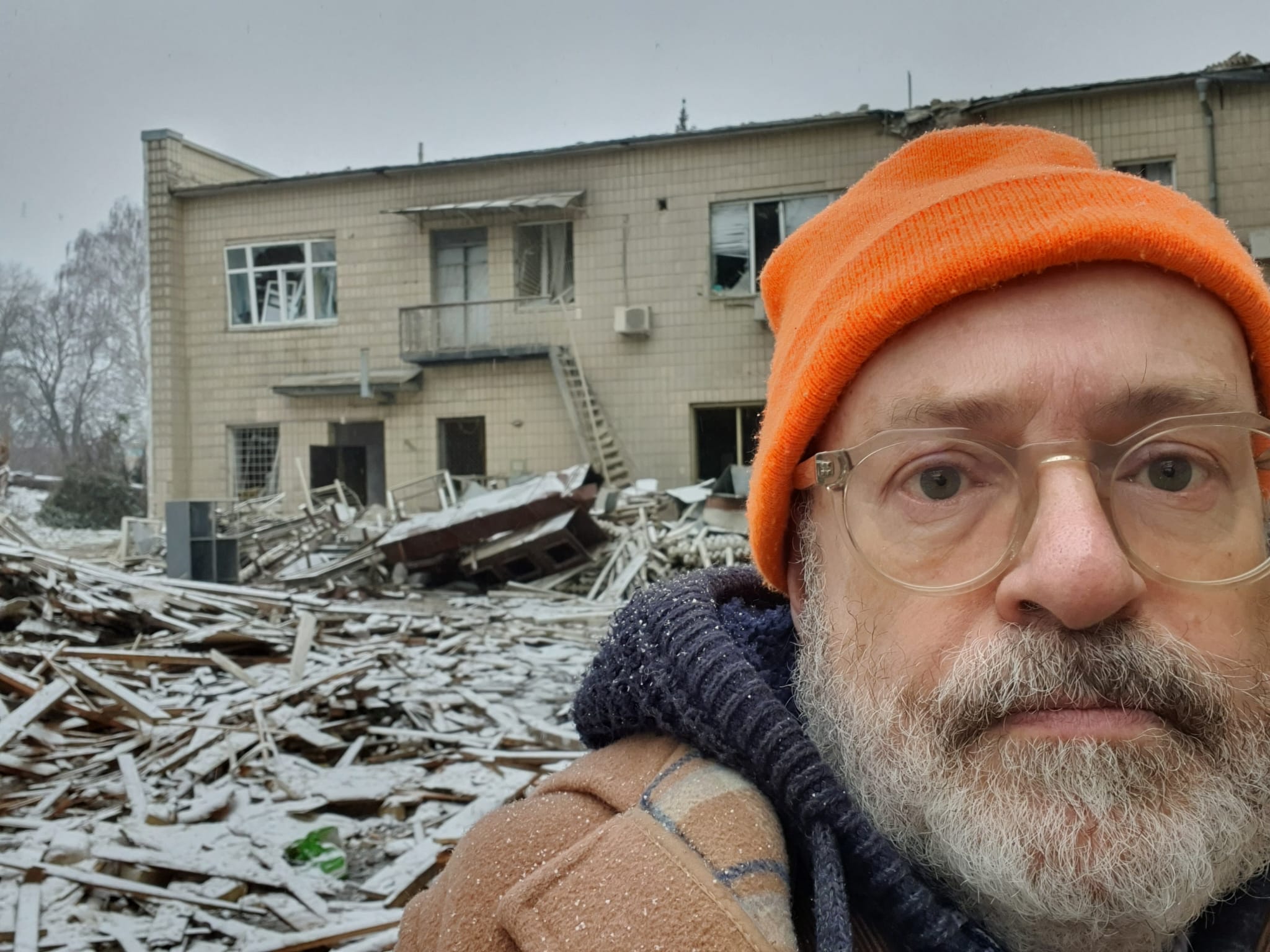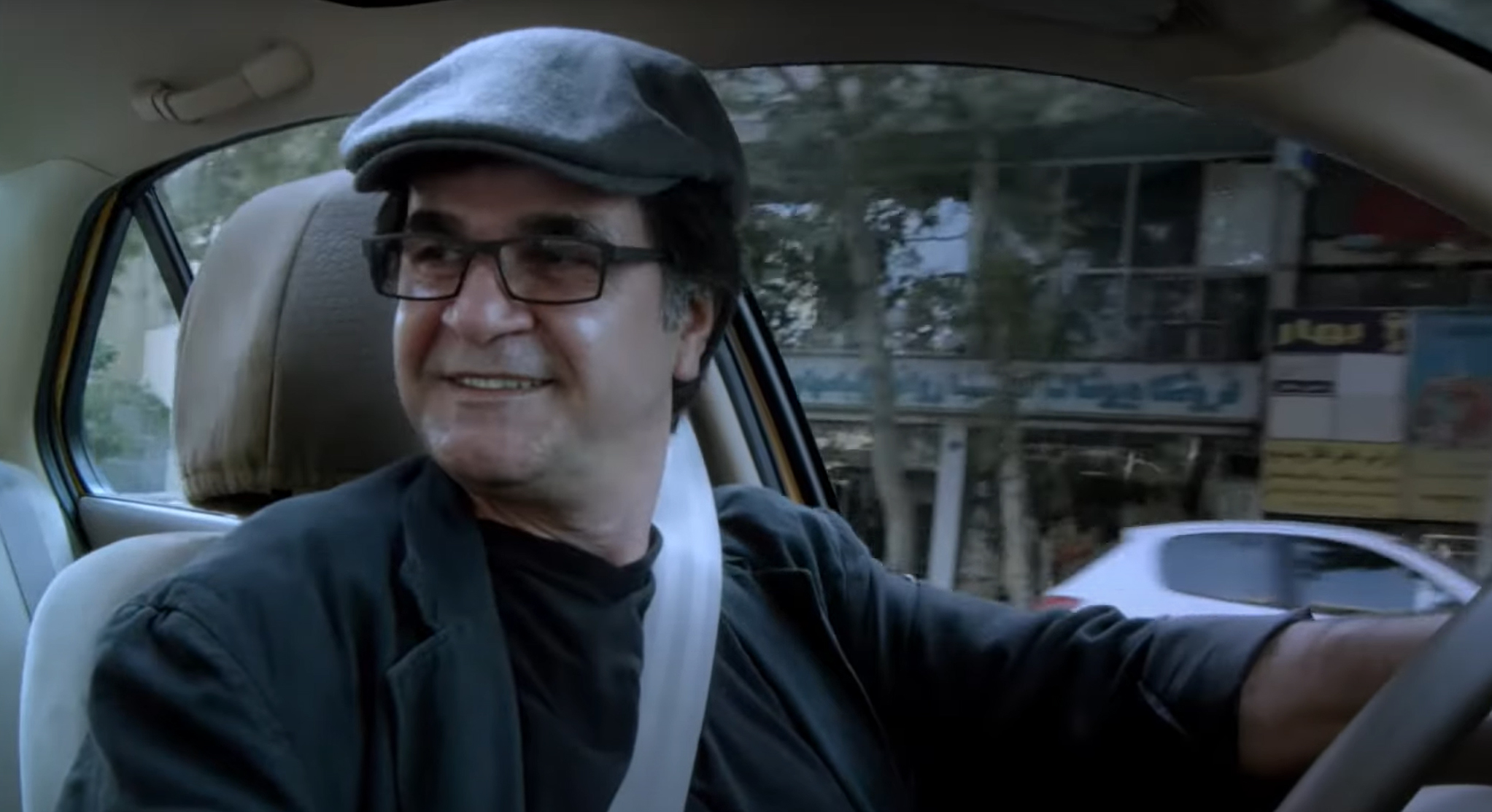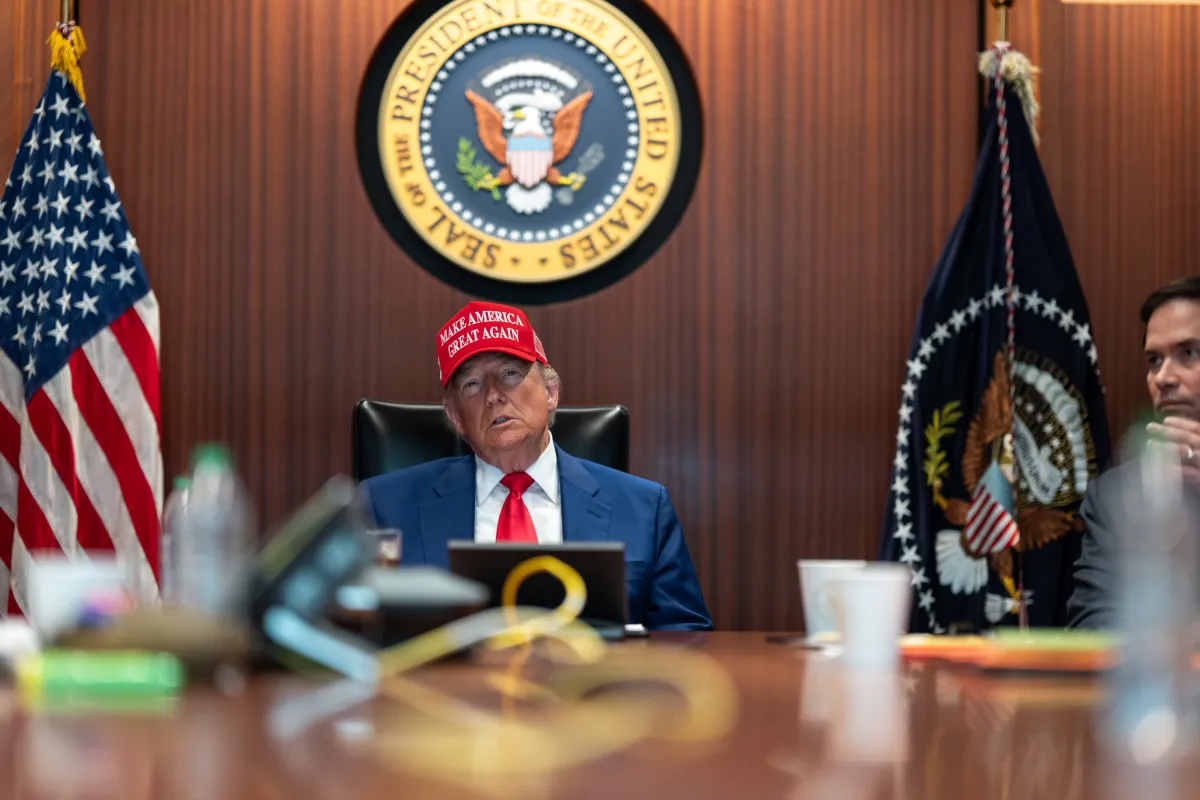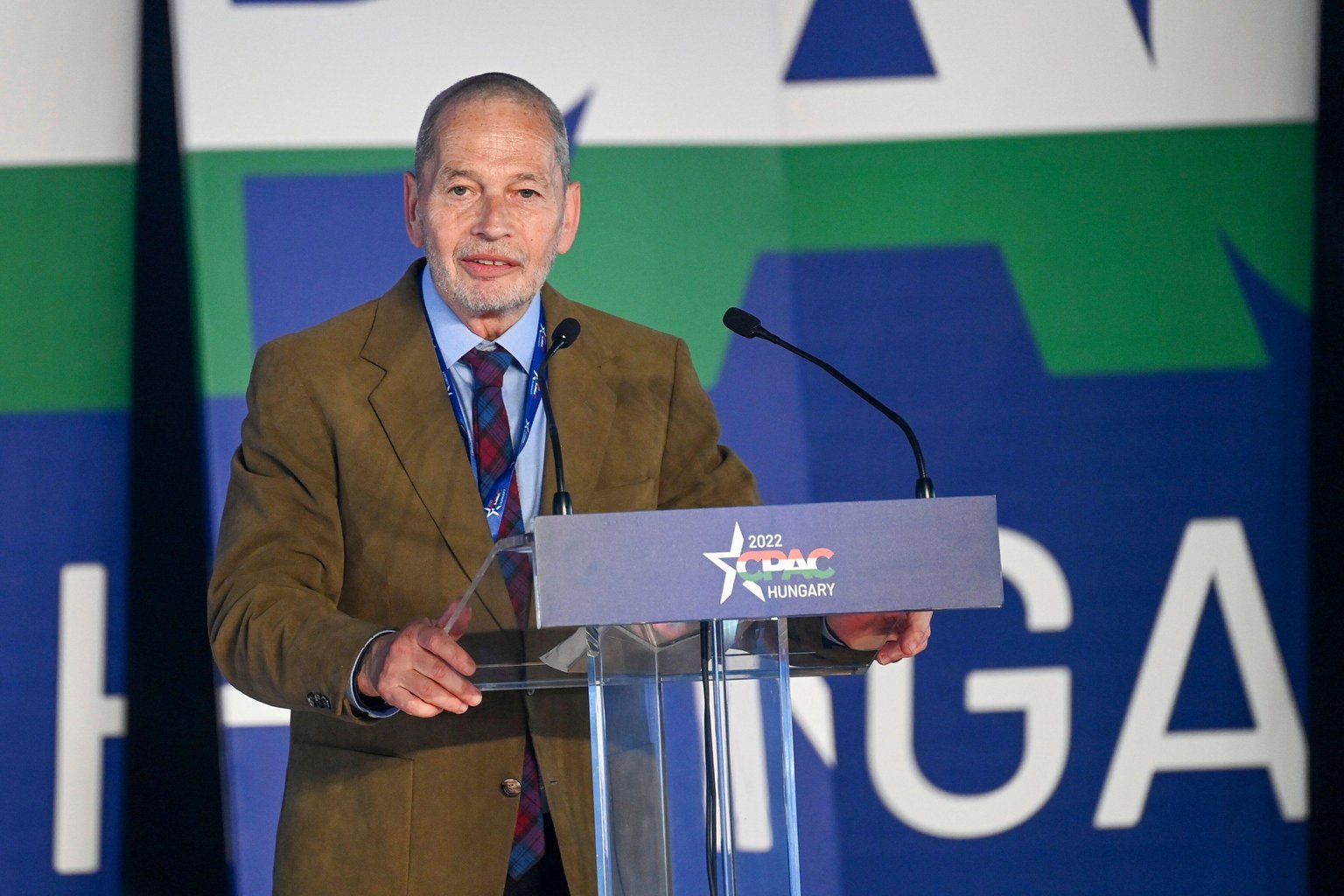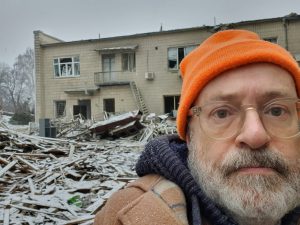
John Sweeney reporting from Ukraine for Index
Rost used to be a hot air balloon pilot before the war but now he’s a grim figure in dark hoodie, carrying a rifle, his face knotted with pressure because he is guarding Kyiv’s TV tower from Russian attack. But there is only so much that the Ukrainians can do and the previous night, Tuesday 2 March, at 1800 hours four Russian missiles punched through, hitting the tower’s control building by its base and knocking Ukrainian TV off the airwaves. The moment curfew lifted at 0800 hours Wednesday morning, I thumbed a lift to the TV tower and was the first reporter inside the complex. The more Rost showed me, the darker it got.
The tower itself disappeared into the early morning fog, not obviously touched but the control building near-by had taken a direct hit. Windows were smashed to smithereens, frames hanging loose, rubble crunching underfoot. Rost explained what had happened in Russian, a language I studied at school and then forgot. I filmed what he said and put it up on Twitter and someone translated: “The rockets flew in….they were laser-guided, they have good equipment, they came towards the building, four rockets came this way, naturally the people died here because of the explosions and I’m showing the gentleman from Britain, losses are serious, the building is ruined.”
He took me round the front of the control building and he stooped to give me a present, an evil butterfly wing of shrapnel, fired from Russia without love. On the ground was a puddle of blood one metre wide, still brightly red in the cold, snow still on the ground. A worker had been killed in the blast, his corpse removed but no-one had yet got around to washing away the blood.
That was the easy bit. We went out of a guardhouse and across a wide street, stepping over electricity cables that had fallen onto the tarmac, to the far side where there was a row of shops, some burnt out, still smoking from the attack the previous evening. On the ground was the corpse of an elderly man and, closer to the shops, the bodies of a mother and child. Ambulance workers or perhaps people from the morgue had come and were placing blankets over the dead before putting them in a dark green van for their last long journey through Kyiv.
The Russian state is saying that it is not killing civilians. That is a lie. I saw evidence of that with my own eyes this morning.
Censorship has many forms but knocking a TV station off air by firing missiles at the transmitting tower is perhaps as subtle as Vladimir Putin gets these days. Less brutal but perhaps more effective in shoring up his grip in power is switching off the last two independent media stations in Moscow, Ekho Moskvy and TV Rain. The last brave reporters with some licence to hit the airwaves have been silenced.
Moscow is fast becoming the new Pyongyang, one of the airports still open to Russian air traffic. Putin’s war is a thing of evil but it’s possible to see that he had made a miscalculation, that he has hopelessly misread the courage of ordinary, extraordinary Ukrainians from their comic turned President down to the florists now making Molotov cocktails, that the West – for once – has got its act together, that the old man in the White House has far more fight in him than the Kremlin could possibly have imagined.
So switching off sources of information, rough and ready though they may be, will become crucial as things get darker for Putin’s regime. Here in Kyiv, that is not an academic question. If the Russians do arrive here in force, then any Ukrainian journalist with a strong voice will be in trouble. Foreign journalists with big media houses at their back – CNN, ABC, Reuters – will have some protection. As a freelance, for the moment, I have my orange beanie hat. Still, telling truth to the Kremlin is a necessity in the twenty first century and it’s only just become fashionable.
The truth is that Vladimir Putin’s military machine is killing civilians in a country at peace until he invaded it. And however much the censor’s pen and switch and missiles command silence, the truth must be told.

